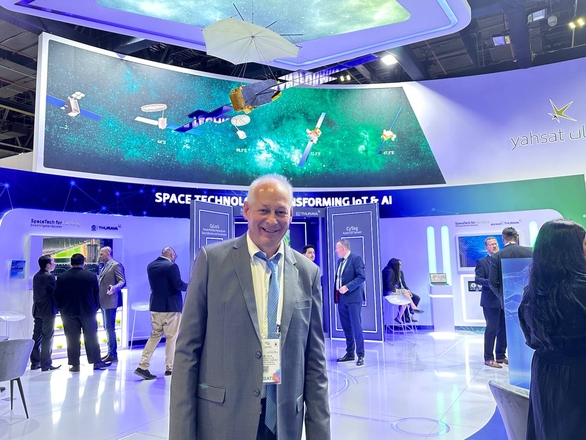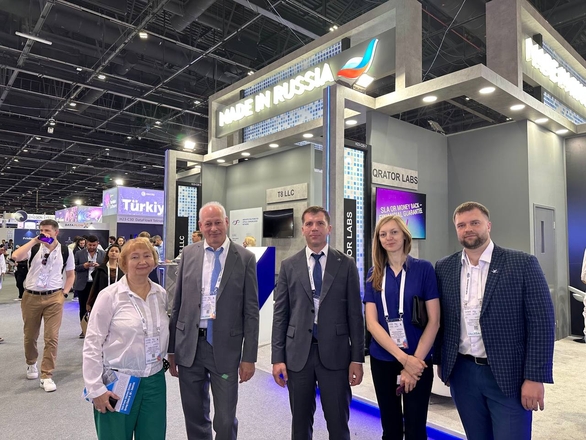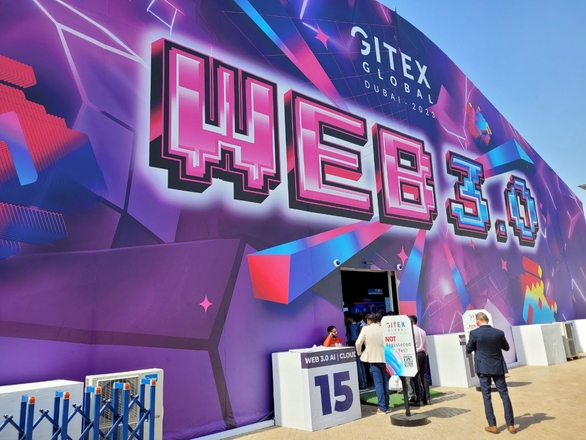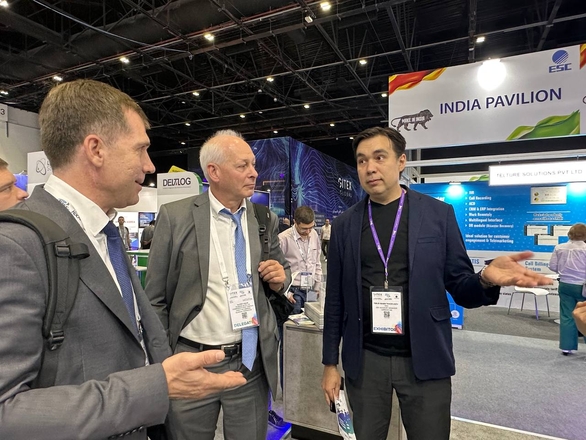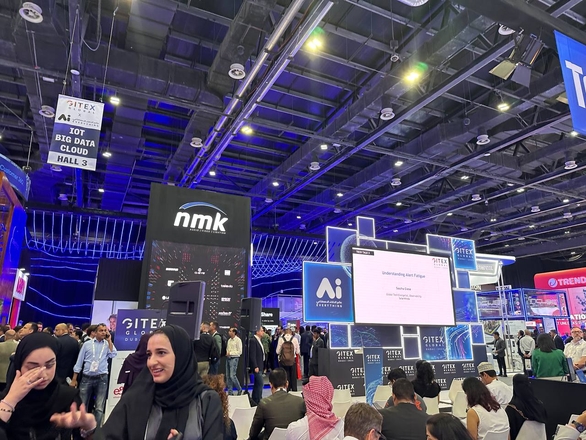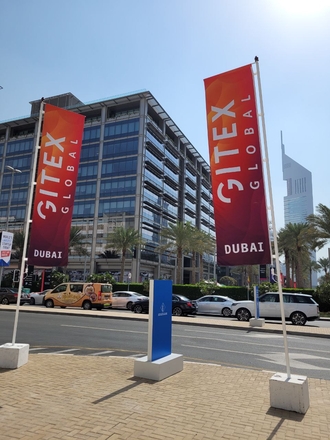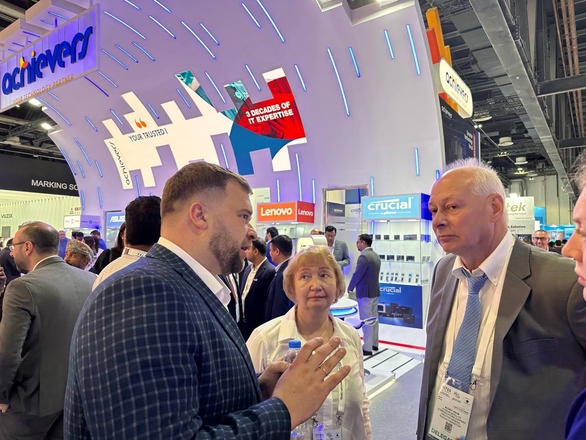Turning to CyberEast: at Gitex 2023, experts discussed disruptive changes that will affect the telecom industry
The delegation of RSCC visited GITEX - the world's largest telecommunications exhibition and conference. The exhibition takes place on October 15-20 in Dubai and hosts 10 events under the same roof which are actually interrelated: GITEX GLOBAL, AI Everything, GITEX Impact, Future Urbanism, GLOBAL Devslam, Superbridge Summit Dubai, Expand North Star, Fintech Surge, Future Blockchain Summit и Marketing Mania.
All areas of high technology are covered, however, the main topic is artificial intelligence and cybersecurity, as these are the most vibrant industries over the past year that affected all aspects of our lives.
Sheikh Mohammed bin Rashid Al Maktoum, Vice President and Prime Minister of UAE and Ruler of Dubai, officially opened GITEX GLOBAL at Dubai World Trade Centre (DWTC) on October 16. Speaking at the opening ceremony, he emphasized: "This year GITEX GLOBAL, Dubai, is hosting more than 6,000 exhibitors from 180 countries who will enter into a new dialogue, paving a transformative new path for the industry." In total, over 180,000 delegates are attending the show.
A peculiarity of the Middle East market is that local players operate on a global scale, along with the development of regional and national projects, buying up assets of operators, developers and promising startups. Now, for example, the Saudi telecom operator STC Group is trying to become Telefonica's largest shareholder with a 9.9% stake. The second aspect is that Gitex's area of interest includes not only global giants and established European telecom companies, but also represents regional players quite well: India, Pakistan, China, Turkey are the countries with the most promising telecom market today. Russia was also represented at Gitex both by individual company stands and at the general Made in Russia stand.
Artificial Intelligence
A major trend of this year's Gitex is the implementation of artificial intelligence (AI). While 2022 was all about cloud in the UAE's technology industry, this year AI is taking the lead as an unrivaled tool when it comes to cutting costs for enterprises. The adoption of artificial intelligence has skyrocketed in 2023, with all industries exploring new ways to utilize the latest available technology to improve business efficiency and sustainability, and reduce operational costs. In two years, three-quarters of customer communication will support AI-technology.
According to IDC, a consultancy, the Middle East and Africa will show the "highest growth" in AI spending globally, reaching $6.4 billion in 2026.
Not surprisingly, investment in AI in Gulf States is largely driven by huge investments. IDC MEA's AI and Automation survey shows that nearly 35% of large enterprises with more than 500 employees are already investing in AI, while another 50% expect to do so in the next 12-18 months. Quite the opposite, mid-sized enterprises with 250 to 500 employees exhibit a less mature investment model in the AI area.
According to a McKinsey study, artificial intelligence (AI) could bring up to $150 billion to Middle Eastern countries, equivalent to at least 9% of the combined GDP of Gulf Countries.
In Gulf Countries, different industries are implementing AI at different rates, with retailers making the most progress. Those companies that operate in an international, highly competitive market are much quicker to adopt AI. The United Arab Emirates (UAE) government is implementing an artificial intelligence strategy to position the UAE as a global leader and develop the country's own AI ecosystem.
The strategy focuses on nine sectors where artificial intelligence should have the greatest impact: transportation, healthcare, space, renewable energy, water supplies, tech industries, education, environment and traffic. Manish Ranjan, senior research manager for software, cloud and IT services at Dubai-based IDC Mena, said on the sidelines of the Gitex conference: "These strategic government initiatives are driving additional investment in the integral development of the AI ecosystem, which includes promising skills, capabilities and exploring new AI use cases."
In 2021, the UAE opened an Artificial Intelligence University, allegedly the first in the world. The country's digital economy is set to make up 20% of GDP within a decade.
That said, investments in artificial intelligence in the Gulf is just in their very early stages. Organizations, public and private, have by now committed to becoming "smart" in their digital services. Saudi Arabia, as part of its philosophy to reduce the country's dependence on oil sales, intends to invest approximately $16 billion by 2040 in AI research and development, focusing in particular on its application in healthcare. In 2022, Saudi Arabia hosted the Global AI Summit, where several agreements were made, the largest of which was an agreement with SenseTime to fund $200 million in AI developments.
The Saudi Data and Artificial Intelligence Authority (SDAIA) has signed an agreement with the International Telecommunication Union (ITU) to develop a global system to measure AI readiness and help other countries implement AI best practices.
One of Saudi Arabia's flagship projects is the $500 billion high-tech city NEOM, which is the main center of artificial intelligence and future technologies. SDAIA has partnered with Google Cloud to announce Elevate, a program to train over 25,000 women in artificial intelligence and machine learning. Interestingly, at GITEX there are also discussions on the use of AI and blockchain in the fashion industry.
Satellite operators presented at the exhibition are also not silent on the subject of AI.
For example, the UAE's main satellite operator Yahsat has fully embraced this year's Gitex theme: "A year to introduce AI in all aspects." The company said it would leverage the power of artificial intelligence and the Internet of Things in number of different applications that would not only make farming smarter, but also enable detecting forest fires faster and help curb illegal fishing.
Furthermore, Thuraya, the mobile communications unit of Yahsat, is transforming satellite-based IoT and AI solutions to provide enterprises with more cost-effective and sustainable solutions.
Within this strategy, at Gitex Yahsat and Thuraya unveiled several solutions based on their satellite constellation, which include:
• An intelligent irrigation solution that uses IoT sensors to monitor weather and soil conditions to optimize irrigation water and reduce waste while maximizing output yield.
• An artificial intelligence solution for forest fire detection that can detect smoke and provide real-time alerts.
• A monitoring solution that uses MarineStar Thuraya to combat illegal and unregulated fishing and optimize fuel consumption.
• Special tag and smart door lock IoT Solution, which can track and monitor shipping containers in real time by land and sea.
• A livestock tracking collar that allows farmers to accurately locate their herds.
